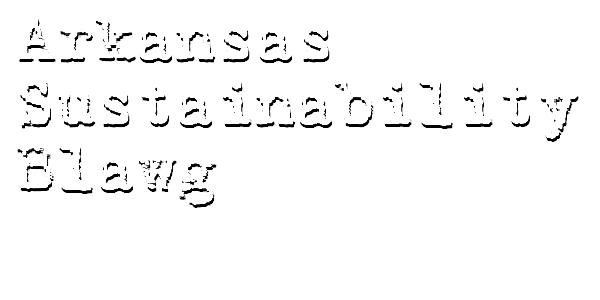Or, perhaps more accurately, what is the law of sustainability?
Good question! My friend, mentor, and law partner Janet Pulliam taught me that sometimes the best way of talk about something that defies definition is to start by identifying what the thing is not about.
So here is what the law of sustainability is not:
• It is not “water law,” “oil and gas law,” or “environmental law”;
• It is not about toxic torts or Erin Brockovich;
• It is not about tree hugging, tree spiking, Glen Canyon, or the Monkey Wrench Gang;
• It is not about a political, religious, or scientific agenda; and,
• It is not about a cost prohibitive approach to doing business divorced from economic reality.
Now that we’ve gotten that out of the way, here is my latest and best stab at what the law of sustainability is about:
It is about bringing a strategic and interdisciplinary approach to the law to partnering with people and businesses that produce or sell sustainable products, services, and innovations, or that operate or aspire to operate in a sustainable manner.
Consider:
You make a widget (widget is a lawyer word for “thing”; we learn it in law school and, therefore, paid a hefty sum for the privilege of using it) that is made entirely of recyclable materials, is recyclable in any community on the earth, and is produced using entirely renewable energy.
This is the easy one. Your business lives smack dab in the middle of the land of the law of sustainability. The federal government (through the Federal Trade Commission) has guidelines that influence the manner in which you can promote and make claims about your product (see previous post). You have particular needs for siting, licensing, permitting, and financing your business, and for purchasing your renewable energy. You may have a LEED certified production facility, and you need to be sure you preserve that certification. If you’ve had the benefit of good legal counsel, then you know that there are local and federal tax credits and incentives related to your workforce and plant and you are taking advantage of them.
Now consider:
You have an idea for a widget, and you want to make that idea a reality. You are decent, well meaning person, but your business plan does not call for a “green” or “environmentally conscious” or “sustainable” business. Bottom line: you just want to be successful, make a few bucks and provide for your family, send your children to the University of Arkansas, and maybe buy a nice bass boat, hunting camp, and/or lake house.
You are still smack dab in the middle of the law of sustainability. There are local, state, and federal tax and financing incentives that can help you build or acquire a manufacturing plant if you take certain easy steps to make the plant “green,” and others that kick-in if you site your plant in a neighborhood that is “depressed” or slated for “revitalization” or “renewal.” There are similar tax breaks and financial incentives that kick in if you employ the right workers. Putting recycling, paperless, and renewable energy initiatives in place from the get go will save your business significant money in the long term. And, more likely than not, when word gets out about your “sustainable” business you will find yourself buoyed by the support of local civic leaders.
So that’s what this blawg is about: I’m a lawyer, and I have some specialized knowledge about the law of sustainability (some of which, quite candidly, others have paid for); Arkansas is prime and fertile ground for people and businesses interested in staking out a piece of sustainability; and I aim to connect the two and tell you about it.
Oh yeah: as for the term “blawg,” that’s just the same as “blog” but with “law” in the middle, which I’ve learned is the way that lawyers title their blogs. My law firm paid a wonderful consultant, Chris Fritch, a lot of money to learn me that.
(Department of Shameless Plugs for Chris Firtch: www.ClientsFirstConsulting.com)

